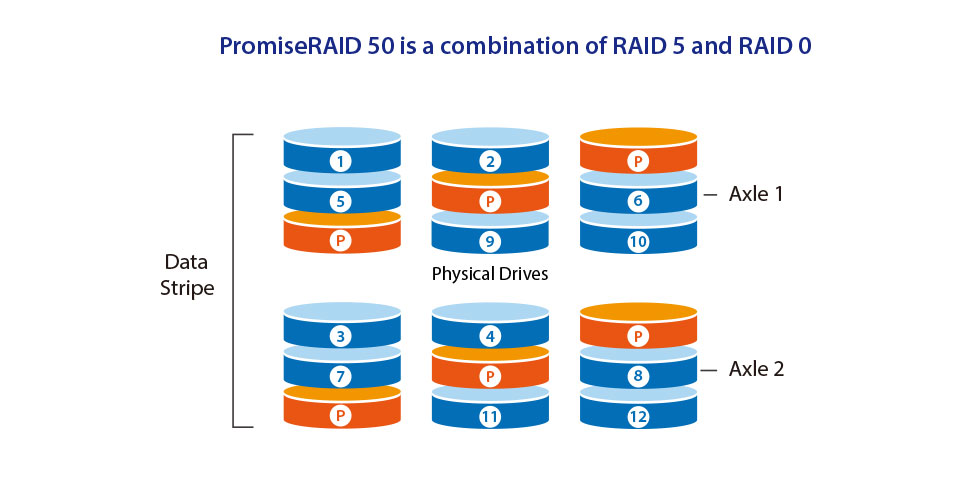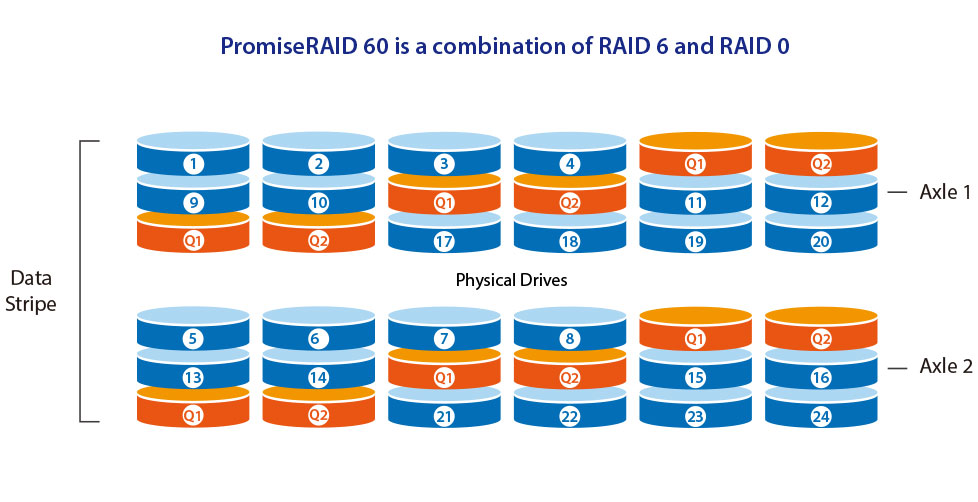PromiseRAID technology is an ideal choice for enterprise storage solutions for a number of reasons:
- Robustness: PromiseRAID provides increased data protection and reliability. It designed to be more resilient to hardware failures and other issues that can impact the reliability of storage systems. Depending on the RAID configuration used, the system can recover from a single hard drive failure or even multiple failures.
- Performance and Capacity: RAID improves storage performance and capacity. PromiseRAID offers superior performance compared to publicly available software RAID. With Promise Storages, it is engineered for high-speed data transfer and processing by spreading data across multiple disks to increase read and write speeds, which can be critical for applications that require fast data access. PromiseRAID also can provide greater overall storage capacity by combining multiple hard drives into a single unit or expanding to multiple units.
- Stability: PromiseRAID is ideal for storage solutions because it provides more consistent performance over time and is less likely to experience crashes, data loss, or other problems that can disrupt operations. It has been be tailored to faster data processing and optimize the use of storage resources.
- Security: PromiseRAID is a more secure RAID than publicly available software RAID. It provides enhanced security features that are not available with other RAID solutions. IoTSF security assurance Class 4 has been applied to Promise storage products, which is the highest category of security assurance to a product under IOT security Assurance Framework.
Predictive Data Migration (PDM) is a PROMISE proprietary technology that can initiate data migration automatically from HDD or SSD to an available spare drive if a potential disk problem or critical error is detected by Media Patrol. This self-healing process runs in the background without any need for administrator intervention with significantly less negative effect. This differs significantly from a simple rebuilding process available on conventional RAID systems in that it clones data on a drive when signs of trouble arise and while it is still readable.
A rebuild on the other hand occurs after the drive has already failed. The difference is that use of PDM results in a much faster migration process that, unlike a normal rebuild, does not require administrative intervention and does not disrupt normal operation. This advantage is especially noticeable in systems utilizing very large drive capacity (multiple TB drives), often populated by numerous individual drives.
PDM and Media Patrol work in tandem to monitor the health status of the hard disks themselves, not the data contained on them in order to extend data protection well beyond conventional RAID setups. Finally, when the entire process is completed, spare drive becomes part of the array while the status of the now fully migrated unhealthy drive changes to off line, to be replaced with a new drive.






